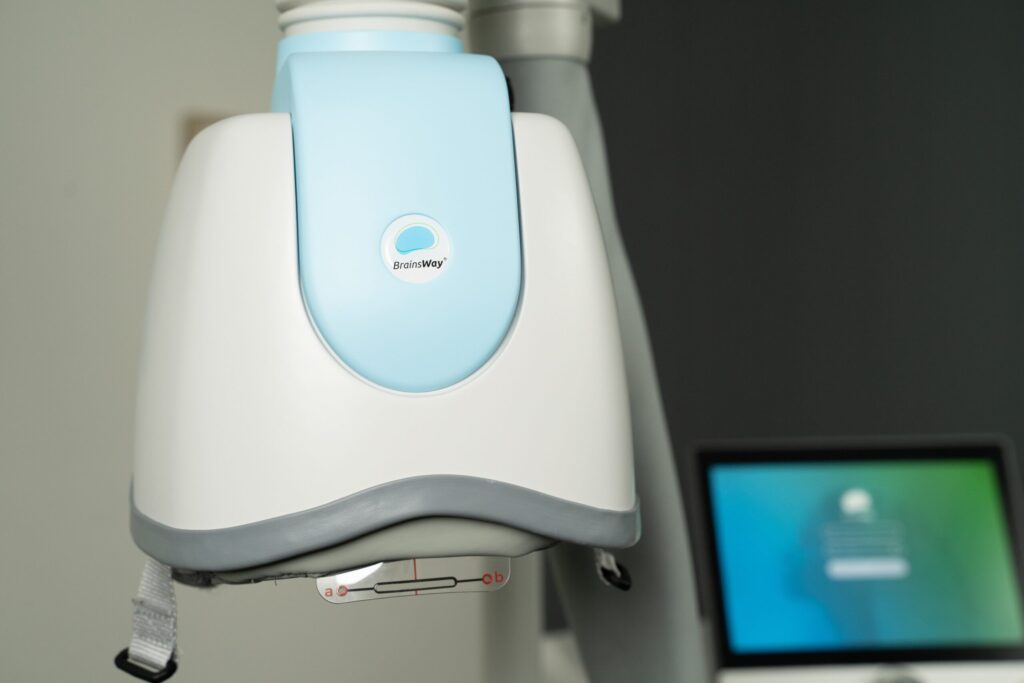Transcranial magnetic stimulation or TMS is a cutting-edge technology that has been approved to treat major depressive disorder since 2008. TMS uses electromagnetic coils to produce a magnetic field that stimulates an area of the brain that is being targeted in the treatment. For the treatment of depression that area is called the left dorsolateral prefrontal cortex (L-DLPFC). One of the challenges in stimulating a particular area of the brain is that these areas tend to be small and are difficult to target with 100% accuracy.
There are generally 2 types of electromagnetic coils that are used for TMS. Most TMS machines use what is called a figure-8 coil. This is an older coil design that uses electromagnets shaped like a figure-8 in a rigid casing that sits over the scalp. This type of coil stimulates an area of the brain that is about 3 cubic centimeters, or about the size of a raspberry. Because of the small area that is stimulated, there is not very deep penetration of the magnetic field into the brain. The reason deep penetration is important is because the brain is not flat. The brain folds on itself creating hills and valleys known as the gyri and sulci. About two thirds of the area to be stimulated by TMS is actually located in those valleys. This makes it very difficult for a figure-8 coil to fully stimulate the desired area.
A newer type of electromagnetic coil is the H-coil that is used by the Brainsway TMS machine for deep TMS. This is what we use here at Rejuvenate TMS. Unlike the figure-8 coil, the H-coil is flexible and is able to be shaped around the head for the best contact. It also covers a much larger area of the scalp and is able to stimulate an area of the brain that is almost 6 times larger than that of the figure 8 coil. This allows the magnetic stimulation to penetrate more deeply into the brain and more accurately target the area for treatment. The results of this is an improved treatment response compared to that of the figure-8 coil.
If you think TMS may be a good solution for treating your depression, contact us to arrange for a free screening and consultation.

